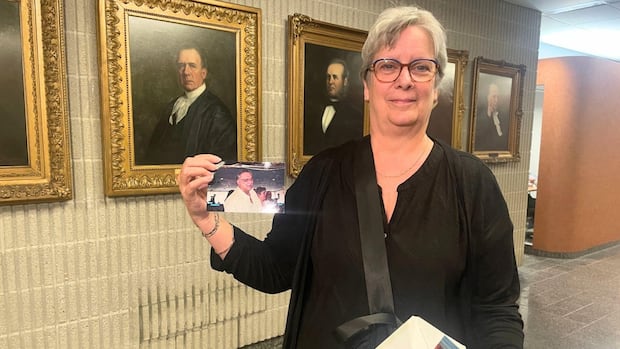‘Nobody was reacting,’ says partner of man who pursued assisted death due to ER bedsore

Sylvie Brosseau carried an envelope full of photos of her partner, Normand Meunier, as she bravely testified in front of coroner Dave Kimpton. Her voice cracked as she shuffled through the stack, revealing a photo of Meunier in a golf cart with their grandchildren. Despite being quadriplegic, Meunier was a man with many projects and goals.
However, everything changed when Meunier developed an “incurable” bedsore during his stay at Saint-Jérôme Hospital. He spent four days on a stretcher in the emergency room without access to a specialized mattress, which eventually led to a severe bedsore that stretched down to his muscle and bone. Brosseau described the bedsore as “unimaginable” and heartbreaking.
Prior to his hospitalization, Meunier and Brosseau had made plans for the future. They enjoyed spending time outdoors and had dreams of picnics and fishing trips. Meunier’s goal was to see his grandchildren grow up, which gave him hope. However, the development of the bedsore changed everything.
Meunier chose to pursue medical assistance in dying as a result of the massive wound and the physical and psychological suffering he endured. His story made headlines and prompted a public inquiry into his death. Brosseau testified about the lack of response to her concerns over the bedsore during his hospitalization. Despite her repeated requests for a therapeutic mattress and proper repositioning, her concerns were not taken seriously by some staff.
After Meunier’s death, Brosseau decided to bring awareness to his reality and advocate for better collaboration to prevent similar incidents from happening again. She emphasized that pressure sores can occur in hospitals frequently and called for better care and prevention measures. Brosseau supported Meunier in his decision to die on his terms, even though some family members didn’t completely understand.
The ongoing public inquiry into Meunier’s death aims to hold accountable those responsible for the lack of appropriate care and response to his condition. With over 30 witnesses, including nurses, family doctors, and specialists from various healthcare facilities, the inquiry seeks to shed light on the need for improved care standards and collaboration in preventing such tragic incidents in the future.
As Brosseau continues to share her partner’s story and advocate for better care practices, she hopes that Meunier’s legacy will serve as a catalyst for positive change in the healthcare system.



